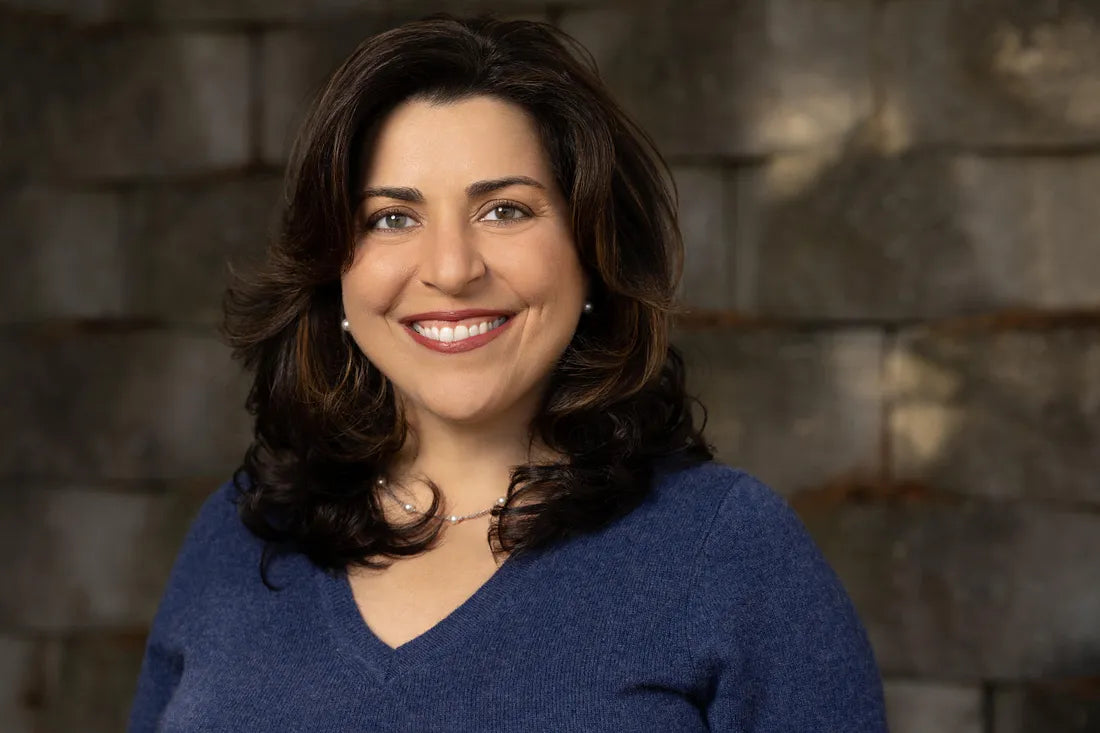Individuals with food allergies, sensitivities and intolerances must avoid eating patterns containing certain foods. For example, individuals with celiac disease must avoid a diet containing gluten, a type of protein found in wheat, rye, barley and triticale, as it can trigger an immune response that damages the small intestine and can lead to a number of serious health problems.
Inan era dominated by pharmaceutical solutions, there is a rising consciousness about the incredible healing and preventive powers of food. As the age-old saying goes, “Let food be thy medicine, and medicine be thy food.” But how does this translate in today’s world? Can we really use nutrition as a potent tool against sickness and disease? How does one curate a diet that supports health, longevity, and wellness? In this series, we are talking to nutritionists, dietitians, medical professionals, holistic health experts, and anyone with authoritative knowledge on the subject. As a part of this series, we had the pleasure of interviewing Allison Yoder, MA, RDN, LD.
Allison Yoder is an Iowa native who believes that healthy eating habits are achieved one goal at a time. Allison’s education in nutrition and research background provides an opportunity to use evidence-based guidelines for realistic and easy-to-achieve recommendations. As a busy mom, Allison likes to educate patients on balanced eating and menu planning for on-the-go individuals and families.
Thank you so much for joining us in this interview series! Before we dive into the main focus of our interview, our readers would love to “get to know you” a bit better. Can you tell us a bit about your childhood backstory?
Iam an Iowa native, born and raised. Although I grew up in a John Deere household surrounded by corn fields in my community, my knowledge of food production and agriculture did not extend beyond the grocery store. After I completed my college degrees and obtained RDN credentials, I began working as a registered dietitian within the food retail setting, engaging directly with customers in the supermarket aisles. It was from my first job that my interest and passion for the food industry began to blossom.
What or who inspired you to pursue your career? We’d love to hear the story.
My interest in dietetics began in high school. I was a competitive dancer and recently diagnosed with a brain tumor. Following a successful surgery, I worked with a registered dietitian to regain my strength and return to a sport I loved.
It has been said that our mistakes can sometimes be our greatest teachers. Can you share a story about the funniest mistake you made when you were first starting? Can you tell us what lesson you learned from that?
I like to refer to mistakes as ‘life lessons’, providing important stepping stones toward a path forward. One life lesson that sticks with me involves a “one size fits all” mentality when first starting out. Diets were prescribed with food recommendations based on health conditions. Over the years, the stepping stones I learned from this life lesson included a realization that each individual comes with a unique set of needs - health condition, dietary preferences, budget, social determinants of health, culture, etc. There is no “one size fits all” when it comes to personalized nutrition.
You are a successful leader. Which three character traits do you think were most instrumental to your success? Can you please share a story or example for each?
- Integrity – I use moral principles and core values as a guide within my personal life as well as professional career.
- Ambitious – I have a strong desire to achieve success by setting goals and striving toward unrelentless excellence.
- Enthusiasm – I express joy in each task I work on, while also motivating individuals and teams to view every project as ongoing progress toward innovation.
What are some of the most interesting or exciting projects you are working on now? How do you think that might help people?
Working on the Food as Medicine team for Kroger Health, we design programs that provide a dedicated, educated, and personalized approach to eating and enjoying food. Our programs are solution-oriented and product specific, such as Medically Tailored Meals, Telenutrition, and OptUP (Kroger’s nutrition rating system), to allow individuals to live healthier lives and prevent illness before it starts.
OK, thank you for all of that. Let’s now shift to the core focus of our interview about cultivating wellness through proper nutrition and diet. To begin, can you tell our readers a bit about why you are an authority on the topic of nutrition?
I am a registered and licensed dietitian nutritionist with a background in food, nutrition, and research. For the past 18 years, I have studied health and well-being trends of consumers and have specialized in strategy and business development within food retail settings.
We all know that it's important to eat more vegetables, eat less sugar, etc. But while we know it intellectually, it's often difficult to put it into practice and make it a part of our daily habits. In your opinion what are the main blockages that prevent us from taking the information that we all know, and integrating it into our lives?
There is a wealth of information available to individuals on food, nutrition, and daily habits. Too much information has paralyzed us into an “all or nothing” mindset, providing barriers toward long-term sustainable behavior changes. People tend to go to the grocery store more than they do their doctor’s office, creating a unique opportunity for grocery stores to impact health. Kroger recognized that eating healthy can feel hard, and developed OptUP, a nutrition rating system to simplify choosing nourishing foods. The goal of OptUP is to make it simple and sustainable for customers to shop and eat well. Driven by Kroger’s team of expert registered dietitians, OptUP nutrition ratings are calculated by leveraging data science, evidence-based nutrition information, and machine learning to rate foods on a simple scale from 1 to 100. The more nutritious the food, the higher the nutrition rating.
From your professional perspective, do you believe that nutrition plays a pivotal role in supporting the body's natural healing processes and overall well-being, particularly in cases of chronic diseases? We're interested in hearing your insights on the connection between a holistic approach to diet and its benefits for individuals facing health challenges.
Poor nutrition is one of the top four main risk factors for preventable diet-related chronic disease in the United States. The role that food and nutrition play in sustaining health, preventing disease and as a therapy for individuals with conditions that may be responsive to diet is strongly supported by research. Individuals with food allergies or intolerances must adjust their eating patterns to accommodate their chronic condition. Other conditions, such as diabetes or heart disease may also require lifestyle modifications, such as prescribed medication, regular physical activity, and healthful dietary patterns to reduce symptoms of high blood sugar or elevated blood pressure.

Based on your research or experience could you share with us five examples of foods or dietary patterns that have demonstrated remarkable potential in preventing, reducing, or managing specific health conditions?
1 . Kroger Health recently published a randomized controlled trial in April 2022 called Supermarket and Web-based Intervention targeting Nutrition (SuperWIN) aimed at increasing diet quality and decreasing cardiovascular risk. Kroger’s team of registered dietitians promoted a heart-healthy diet through nutrition counseling. The study findings found that in-aisle teaching with a registered dietitian significantly increased adherence to a heart-health diet compared to traditional nutrition counseling alone, and adherence to the DASH dietary pattern was further improved when in-aisle teaching was paired with education on how to use online shopping technologies.
2 . Research around eating patterns and health outcomes provide evidence-based dietary recommendations for health professionals to utilize in the prevention, management, and treatment of chronic conditions. For example, the DASH diet, an eating pattern emphasizing consumption of fruit, vegetables and low-fat dairy while limiting the intake of foods high in sodium, saturated fat and added sugar, has been extensively researched. The results of these studies show that the DASH diet lowers blood pressure, improves the lipid panel, and reduces the risk of heart disease, shaping the DASH eating plan recommendations from the National Heart, Lung and Blood Institute.
3 . Individuals with food allergies, sensitivities and intolerances must avoid eating patterns containing certain foods. For example, individuals with celiac disease must avoid a diet containing gluten, a type of protein found in wheat, rye, barley and triticale, as it can trigger an immune response that damages the small intestine and can lead to a number of serious health problems.
4 . There is growing evidence that medically tailored meals provided to individuals with chronic conditions may impact health, reduce total cost of care, and improve food and nutrition access.
5 . Other Food as Medicine interventions, such as produce prescription programs, can improve access to nutritious, affordable food. While all foods can fit into a healthy lifestyle, certain foods support health more than others. Adding a produce incentive through prescription programs aims to improve dietary patterns, health outcomes and food security.
Do experts generally agree that merely choosing healthy foods isn’t sufficient, but that understanding how to consume them is key to unlocking their full health benefits? (For example, skins on/off, or cooked/raw, or whole grain/refined grain) Could you provide advice on how to approach this and sidestep common errors or misconceptions?”
Through consumer insights, we know that our customers value eating healthier. However, knowledge, behavior, and skills related to food and nutrition can vary greatly from individual to individual. Our team of registered dietitians at Kroger is passionate about nutrition education, providing nourishing food inspiration and personalized goals to meet the individual needs of each patient they work with.
With the recent prominence of nutrition’s integration into healthcare, what’s your perspective on the collaborative approach between medical professionals, health coaches, and nutrition experts when it comes to delivering holistic patient care? Can you please explain?
Collaboration between health care professionals is essential for providing a multi-component approach toward improved health outcomes of individuals as well as communities. Kroger’s vision to help people live healthier lives, with Food as Medicine at the forefront, fully supports this philosophy. Kroger Health, the healthcare arm of the Kroger Co., has over 2,300 pharmacies, 11 specialty pharmacies nationwide and 200 clinics. Our team of 22,000 healthcare professionals — from pharmacists and nurse practitioners to registered dietitians — services over 13 million customers.
It’s been suggested that using ‘food as medicine’ has the potential to reduce healthcare costs by preventing disease severity. However, there’s concern about the affordability of healthier food options. What solutions do you believe could make nutritious choices accessible to everyone, ensuring that food truly becomes a form of medicine for all?
The COVID-19 pandemic brought needed attention to issues that have been impacting communities for years, including the urgent need to improve access to nutritious foods and to provide more equitable healthcare to vulnerable populations and communities of color. Now more than ever, Kroger Health is dedicated to improving nutrition security and access to healthcare, through research, programming, and advocacy efforts so all community members can live healthier lives.
Everyone’s body is unique, and what works for one might not work for another. How does one navigate the vast array of nutritional advice available today to curate a diet tailored to individual needs, ensuring health and longevity?
Our team of registered dietitians aims to deliver a dedicated, educated, and personalized approach to eating and enjoying food through medical nutrition therapy (MNT), an evidence-based nutrition counseling practice. MNT incorporates nutrition assessment, diagnosis, intervention, monitoring and evaluation, which also considers one’s health condition, medications, social determinants of health, stages of behavior change and dietary preferences. Through this approach, realistic and attainable goals can be set to achieve sustainable outcomes for each individual.
As our understanding of the intricate link between food and health continues to evolve, we’re curious to know which emerging trends or breakthroughs in nutritional science excite you the most. How do you envision these advancements shaping the future of healthcare?
The growing collaboration between healthcare professionals, ongoing research and advocacy efforts are what excite me the most. Kroger strives every day to elevate the grocery store as a destination for preventive healthcare. Through the combined efforts of public health, policy and growing evidence, we can continue to simplify healthcare and help people live healthier lives with Food as Medicine at the forefront.
How can we better educate the public about the medicinal properties of food, and what role do professionals like you play in this educational journey?
Our registered dietitians are specially trained to provide expert guidance on making complex nutrition science easy and actionable. For example, 1) healthy alternatives, delicious recipes and meal ideas; 2) nutrition counseling based on medical condition; 3) guidance on nutritious foods to add to a grocery list; 4) advice on how to navigate the grocery store; and 5) tips for feeding families nourishing food while sticking to a budget.
How can our readers further follow your work online?
Healthy Living & Nutrition Advice — Kroger
Thank you for these really excellent insights, and we greatly appreciate the time you spent with this. We wish you continued success and good health!
About the Interviewer: Wanda Malhotra is a wellness entrepreneur, lifestyle journalist, and the CEO of Crunchy Mama Box, a mission-driven platform promoting conscious living. CMB empowers individuals with educational resources and vetted products to help them make informed choices. Passionate about social causes like environmental preservation and animal welfare, Wanda writes about clean beauty, wellness, nutrition, social impact and sustainability, simplifying wellness with curated resources. Join Wanda and the Crunchy Mama Box community in embracing a healthier, more sustainable lifestyle at CrunchyMamaBox.com.




